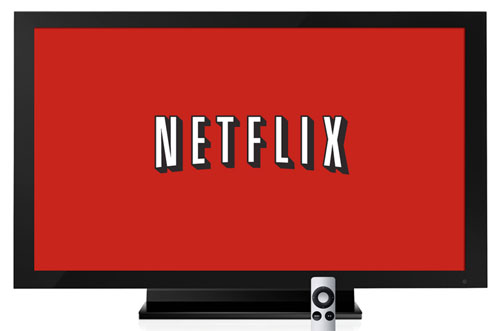Last month saw a major announcement that could have massive implications for the streaming of 4K content to ultra high-definition (UHD) TVs. Netflix signed a highly publicised agreement with US internet service provider Comcast to gain direct access to its unthrottled network, a deal that should ensure its subscribers enjoy a much smoother experience thanks to guaranteed throughput.

News of Netflix’s deal comes just weeks after the FCC lost a major court case that looks to spell the end of so-called “net neutrality”, paving the way for major internet brands to be able to buy more bandwidth and ensure no interruptions to their services.
For Netflix, the deal with Comcast should put to bed a growing problem it’s been faced with lately – that of slower transfer speeds which results in its customers only receiving SD streams, even when their broadband connection is capable of receiving streams in HD.
Why is this happening? Because the world of broadband connections is a messy one, and companies like Netflix are forced to connect to carriers like Comcast and Verizon through a middleman – in Netflix’s case, that middleman is a company called Cogent Communications. The problem, as explained here, is that Cogent isn’t able to stream the vast amounts of data Netflix needs to deliver at full speed, because its connections to Comcast’s and Verizon’s network are out of date. Worse still, both the ISPs and Cogent argue that the other company should pay to upgrade these connections.
Of course, it’s Netflix who suffers from this most of all, and that’s why it’s gone direct to Comcast in an effort to circumvent the problem. The terms of the deal haven’t been fully disclosed, but Netflix will get direct access to Comcast’s network, allowing it to eliminate the problems of inconsistent transmission speeds and dropped data packets that have caused its streams to slow down. The agreement is a multiple-year deal, though Comcast insists that it will not give Netflix’s content any preferential treatment, like increased bandwidth.
It’ll be a while before the deal is properly implemented, but the end result is that Netflix customers should see much higher quality streams than they have been doing, especially for higher resolution HD and 4K content. Indeed, the implications for 4K could be massive – after all, Netflix’s bandwidth throttling problems were most acute during peak times, and could get worse when its popular show House of Cards is broadcast in 4K Ultra HD. With the company promising even more 4K content to come later this year, the biggest single obstacle in the way of it doing this has been removed.
Eventually we could see other services reach a similar deal with ISPs too – like the new Amazon Prime service, which would surely be interested in getting direct access to these networks itself once it builds a library of 4K content.
That’s not to say there won’t be any problems. Richard Lawler of Engadget writes in his op-ed that Netflix is paying Comcast less than what it was paying to Cogent to access its network directly, but that doesn’t mean it won’t end up paying more later on. As more customers get their hands on 4K TVs and sign up for the service, Netflix is going to need much greater throughput to stream all of this higher resolution content, and that’s when the costs will increase. With Netflix having previously announced plans to spend $3 billion on content creation this year, plus a further $6.2 billion over the next three years, it’s going to need to recoup this money from somewhere – and the burden will almost certainly fall on its customers.
But for now at least, that’s no longer the case. As things stand now, the deal is a win-win scenario for anyone who subscribes to Netflix, especially if they also happen to own a compatible 4K television. It’s a deal that has the potential to usher in an era where internet streaming becomes the first viable way to get access to a steady supply of 4K content, even if we might later end up having to pay through the nose for it.